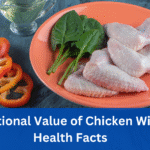A stroke is a medical emergency that occurs when the blood supply to part of the brain is suddenly interrupted or reduced, preventing brain tissue from getting the oxygen and nutrients it needs. Without oxygen-rich blood, brain cells begin to die within minutes. Strokes can be caused by a blocked artery (ischemic stroke) or the bursting of a blood vessel (hemorrhagic stroke). Fortunately, a significant number of strokes can be prevented through healthy lifestyle choices, and diet plays a crucial role in that prevention.
Eating the right foods can help lower blood pressure, reduce cholesterol, control blood sugar levels, and decrease inflammation — all risk factors for stroke. Let’s explore the top foods that may help you prevent stroke and support your overall cardiovascular health.
1. Leafy Green Vegetables
Leafy greens such as spinach, kale, arugula, and collard greens are rich in vitamin K, folate, and antioxidants. Folate, a type of B vitamin, helps regulate homocysteine levels in the blood — high levels of which are associated with increased stroke risk.
Why they help:
-
Help lower blood pressure
-
Support healthy blood vessels
-
Provide anti-inflammatory nutrients
Tip: Aim to consume at least one to two cups of leafy greens daily in salads, smoothies, or cooked dishes.
2. Fatty Fish
Fatty fish like salmon, mackerel, sardines, and trout are loaded with omega-3 fatty acids, which help reduce inflammation, lower triglyceride levels, and improve blood circulation.
Why they help:
-
Reduce blood clotting
-
Decrease plaque buildup in arteries
-
Lower risk of ischemic stroke
Tip: Consume at least two servings of fatty fish per week for optimal cardiovascular benefits.
3. Whole Grains
Whole grains such as oats, brown rice, quinoa, barley, and whole wheat provide essential fiber, B vitamins, and minerals. They help regulate blood pressure and improve cholesterol levels.
Why they help:
-
Lower LDL (bad) cholesterol
-
Help manage blood sugar
-
Promote satiety and weight control
Tip: Replace refined grains like white bread with whole-grain options to maximize fiber intake.
4. Berries
Berries, especially blueberries, strawberries, and raspberries, are rich in antioxidants like anthocyanins and flavonoids, which protect against oxidative stress and inflammation.
Why they help:
-
Support healthy blood vessels
-
Improve brain function
-
Reduce blood pressure
Tip: Add a handful of berries to your breakfast, snacks, or smoothies every day.
5. Nuts and Seeds
Almonds, walnuts, flaxseeds, chia seeds, and sunflower seeds are excellent sources of healthy fats, magnesium, and vitamin E.
Why they help:
-
Improve cholesterol profile
-
Reduce inflammation
-
Support vascular health
Tip: Eat a small handful (about 1 oz) of unsalted nuts daily or sprinkle seeds on yogurt, salads, or oatmeal.
6. Beans and Legumes
Beans, lentils, chickpeas, and peas are rich in plant-based protein, fiber, and potassium, which are all beneficial for heart and brain health.
Why they help:
-
Stabilize blood sugar
-
Reduce cholesterol
-
Support healthy blood pressure
Tip: Include legumes in meals at least 3-4 times a week in soups, salads, or side dishes.
7. Avocados
Avocados are a powerhouse of monounsaturated fats, potassium, and fiber. They support healthy cholesterol levels and help control blood pressure.
Why they help:
-
Lower LDL cholesterol
-
Maintain healthy blood vessels
-
Control hypertension
Tip: Use avocados in salads, toast, smoothies, or as a healthier substitute for butter or mayonnaise.
8. Tomatoes
Tomatoes contain lycopene, a powerful antioxidant that protects the brain and blood vessels from oxidative stress and inflammation.
Why they help:
-
Reduce risk of stroke
-
Lower blood pressure
-
Support heart health
Tip: Eat tomatoes fresh, roasted, or in sauces and soups to get the benefits.
9. Low-Fat Dairy
Low-fat milk, yogurt, and cheese provide calcium, potassium, and vitamin D, which are vital for blood pressure control and vascular function.
Why they help:
-
Improve vascular elasticity
-
Regulate blood pressure
-
Provide essential nutrients for nerve function
Tip: Opt for unsweetened and low-fat or non-fat dairy products.
10. Dark Chocolate (in moderation)
Dark chocolate with a cocoa content of 70% or more contains flavonoids that improve blood flow, reduce inflammation, and support heart health.
Why it helps:
-
Enhances blood circulation
-
Lowers blood pressure
-
Reduces oxidative stress
Tip: Limit to a small square (about 1 oz) a few times a week to avoid excess sugar.
Foods to Avoid
While focusing on stroke-preventive foods, it’s equally important to reduce or avoid foods that increase stroke risk:
-
Processed meats (like bacon and sausage)
-
Fried foods and trans fats
-
Sugary drinks and refined sugars
-
High-sodium foods (like canned soups and fast food)
-
Excessive alcohol
Lifestyle Tips Along with Diet
In addition to eating a stroke-preventive diet, consider these lifestyle tips:
-
Exercise regularly (at least 150 minutes of moderate activity weekly)
-
Avoid smoking
-
Maintain a healthy weight
-
Monitor blood pressure and cholesterol levels
-
Manage stress with mindfulness or relaxation techniques
Conclusion
Preventing a stroke doesn’t require drastic changes — it starts with what’s on your plate. By including more leafy greens, whole grains, fatty fish, and antioxidant-rich foods in your daily diet, you can nourish your brain and heart while lowering your risk of stroke. A balanced, nutrient-dense diet, combined with healthy lifestyle habits, can go a long way in protecting your brain health and improving overall well-being.
FAQs: Food to Eat to Prevent Stroke
1. What are the best foods to eat to prevent a stroke?
Some of the best stroke-preventing foods include leafy green vegetables, fatty fish (like salmon), whole grains, berries, nuts, seeds, beans, avocados, tomatoes, and low-fat dairy products. These foods help lower blood pressure, reduce inflammation, and support heart and brain health.
2. Can certain foods actually reduce the risk of stroke?
Yes. Foods rich in omega-3 fatty acids, fiber, potassium, and antioxidants can significantly reduce risk factors for stroke such as high blood pressure, high cholesterol, and inflammation.
3. How does potassium help in stroke prevention?
Potassium helps regulate blood pressure by balancing sodium levels in the body. High potassium intake from foods like bananas, spinach, and sweet potatoes is linked to a lower risk of stroke.
4. Are eggs good or bad for stroke prevention?
Eggs, in moderation, can be part of a stroke-preventive diet. They are high in protein and other nutrients, but it’s best to avoid overconsumption, especially if you have high cholesterol. Opt for boiled or poached eggs rather than fried.
5. Can drinking coffee reduce the risk of stroke?
Some studies suggest that moderate coffee consumption (1–3 cups a day) may reduce the risk of stroke due to its antioxidant content. However, excessive caffeine can increase blood pressure, so moderation is key.
6. Is chocolate good for stroke prevention?
Dark chocolate (with 70% cocoa or more) in small amounts may help lower blood pressure and reduce inflammation, thanks to its flavonoids. Avoid milk chocolate and added sugars.
7. How often should I eat fish to help prevent stroke?
It’s recommended to eat fatty fish at least twice a week. The omega-3 fatty acids in fish like salmon and mackerel help protect against clot formation and reduce plaque in arteries.
8. Do whole grains help prevent stroke?
Yes, whole grains such as oats, quinoa, and brown rice are high in fiber, which helps reduce cholesterol and improve heart health — both important for stroke prevention.
9. Are there any foods I should avoid to reduce my stroke risk?
Yes. Avoid or limit processed meats, fried foods, foods high in trans fats and sodium, sugary drinks, and excessive alcohol. These can increase blood pressure and cholesterol levels.
10. Can diet alone prevent a stroke?
While a healthy diet is essential, stroke prevention also depends on other lifestyle factors like regular exercise, not smoking, controlling blood pressure, managing stress, and maintaining a healthy weight.





